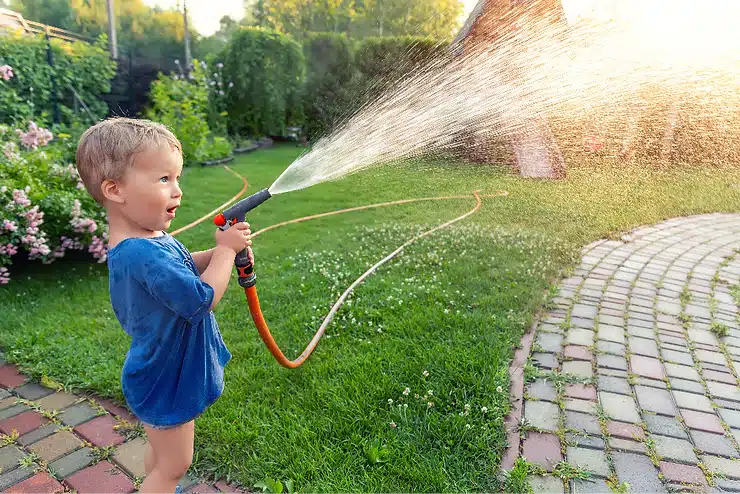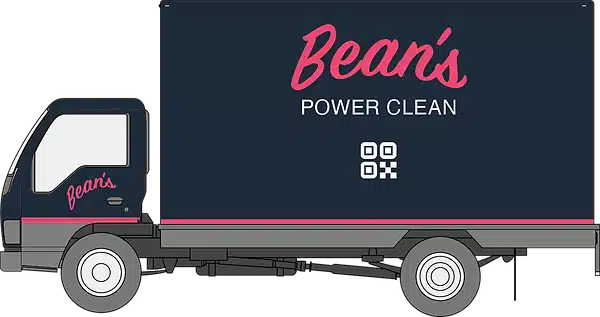When it comes to cleaning your home’s exterior, homeowners often find themselves deciding between two popular methods: pressure washing and soft washing. While both can effectively remove dirt, grime, and mildew, they are fundamentally different approaches, each with its own strengths and risks.
At Bean’s Power Clean, we often recommend soft washing as the better option for most homes—especially for delicate materials like Hardy board, brick, and stucco. Let’s break down the differences between pressure washing and soft washing, and why soft washing is often the safer choice for your home’s exterior.
What is Pressure Washing?
Pressure washing is a cleaning method that uses highly pressurized water to blast away dirt, mold, and other contaminants from surfaces. With water pressure often reaching as high as 3,000 to 4,000 PSI (pounds per square inch), it’s an effective way to clean tough surfaces like concrete driveways, stone patios, and heavily soiled decks.
However, this high pressure can pose risks when used on more delicate surfaces like siding, roofing, and brickwork. The force of the water can strip away protective coatings, damage wood, loosen brick mortar, and even cause cracks in materials like Hardy board. While it’s a great tool for heavy-duty cleaning, pressure washing isn’t suitable for every surface.
What is Soft Washing?
Soft washing, on the other hand, uses low-pressure water combined with eco-friendly cleaning solutions to gently clean exterior surfaces. The pressure used in soft washing is much lower—typically less than 500 PSI—making it safe for more delicate materials while still providing a deep clean.
Instead of relying on the force of water alone, soft washing uses specially formulated cleaning agents to break down dirt, mold, algae, and other contaminants. These cleaning solutions are applied to the surface and left to work before being rinsed off with low-pressure water.
Why Soft Washing is Better for Most Home Exteriors
While both pressure washing and soft washing have their uses, soft washing is the superior choice for many residential surfaces. Here’s why:
1. Protects Delicate Surfaces
Pressure washing may be great for tough surfaces like driveways and sidewalks, but it can easily damage more fragile materials. High-pressure water can strip paint, dislodge mortar between bricks, crack siding, and erode wood. Hardy board, vinyl siding, stucco, and wood siding are particularly vulnerable to this kind of damage.
Soft washing eliminates these risks. By using low pressure and letting the cleaning agents do the work, we can safely clean your home’s exterior without causing any harm. It’s a gentler, more effective solution for cleaning delicate surfaces.
2. More Thorough Cleaning
Pressure washing can remove surface dirt, but it often doesn’t address the root cause of stains and discoloration, especially when it comes to mold, algae, and mildew. These organisms can grow deep within porous surfaces like brick and siding, and blasting them off with high-pressure water only provides a temporary solution.
Soft washing, on the other hand, uses cleaning agents designed to kill mold, algae, and mildew at their source. This results in a longer-lasting clean, as these contaminants are not just washed away but are eradicated, preventing regrowth for an extended period.
3. Prevents Water Damage
One of the hidden dangers of pressure washing is that it can force water into areas where it shouldn’t go—such as cracks, seams, and the spaces between siding panels or bricks. Over time, this trapped moisture can lead to mold growth, wood rot, and other types of water damage.
Soft washing greatly reduces this risk by using a low-pressure water stream that is much less likely to push water into unwanted areas. This protects your home from long-term damage while still ensuring a thorough clean.
4. Eco-Friendly and Safe
Soft washing isn’t just safer for your home—it’s also better for the environment. The cleaning agents we use at Bean’s Power Clean are biodegradable and eco-friendly, so they won’t harm your plants, pets, or the surrounding environment. Additionally, soft washing uses less water than pressure washing, making it a more sustainable choice.
By focusing on effective cleaning rather than brute force, soft washing helps you maintain your home responsibly without unnecessary environmental impact.
5. Ideal for Roofs and Other Sensitive Areas
Certain parts of your home, like your roof, are particularly vulnerable to damage from high-pressure water. Shingles, tiles, and other roofing materials can be dislodged or damaged by pressure washing, leading to costly repairs.
Soft washing is the safest way to clean your roof, as well as other sensitive areas like wood fences, decks, and painted surfaces. It provides a deep clean without the risk of causing damage to these critical areas of your home.
When Should You Use Pressure Washing?
Although soft washing is better for most home exteriors, pressure washing still has its place. For surfaces like concrete driveways, sidewalks, brick patios, and stone walls, pressure washing can be an effective and efficient cleaning method. These hard, non-porous materials can handle the high pressure without sustaining damage, and the force of the water can quickly remove dirt, stains, and grime.
At Bean’s Power Clean, we carefully assess each surface of your home to determine whether soft washing or pressure washing is the right choice. Our goal is to use the safest, most effective method for each specific area, ensuring that your home is cleaned thoroughly without any risk of damage.
Conclusion: Soft Washing is the Smarter, Safer Choice for Most Homes
When it comes to keeping your home’s exterior clean, soft washing provides all the benefits of a deep clean without the risks associated with high-pressure washing. By using low pressure and effective cleaning solutions, soft washing not only protects delicate surfaces but also prevents water damage, offers longer-lasting results, and is a more eco-friendly option.
If you’re looking to give your home the care it deserves, contact Bean’s Power Clean today. We’ll help you determine the best cleaning method for your home and ensure that your exterior looks its best while staying safe from unnecessary damage.


